Story of an army widow who is supporting over 120 families of martyrs through art and education
Subhashini Vasanth, an army widow, channelled her grief to empower the ‘veer naris’ of the Indian Army through the Vasanthratna Foundation for Arts.

When a soldier attains martyrdom, the state honours him, and people mourn his loss and light candles in his memory. However, the tragedy of war is borne majorly by the martyr’s family.
Nirmala Kulkarni, born in Kushtagi of Bagalkot district, always lived a sheltered life; protected by her family and loved ones. She moved out of her village, for the first time, to Delhi when her husband got his first posting with the Indian Army. During the Kargil war, her husband was posted in Drass, a town in the Kargil District of Jammu and Kashmir.
On the night of May 26, her husband wrote her a letter and posted it the next morning. After posting the letter, on his way back to the camp, he was caught in shelling by enemy troops and lost his life.
When his body reached his family in the village a few days later, Nirmala went numb. She recalls,
I did not know what to do, my heart was bleeding, my mind was not working and I could not even share my troubles with anybody. At that moment, I thought of ending my life and joining my husband. But then, I saw the faces of my two young kids and I just could not bear the thought of leaving them alone in this world. As we finished the final rites, I took the army cap and put it on my four-year-old son saying he should follow in his father’s footsteps. On that day, I began another life.
Nirmala, refused to succumb to the suffering and channelised her grief to become the strength for her kids, work towards their education, manage finances and pensions, and more importantly, keep her husband’s legacy alive through her indomitable spirit. And she found her support in 47 year old Subhashini Vasanth, the founder of the Vasanthratna Foundation for Arts (VRFA).
An extended family
Subhashini Vasanth, recipient of the Neerja Bhanot Award, 2016, was not alien to the life and struggles following a soldier's death. Her husband, Col. Vasanth Venugopal, AC, Commanding Officer, 9 Maratha LI, laid down his life while fighting insurgents in Jammu & Kashmir on July 31, 2007, while he was deployed in the rugged and inaccessible terrain in Uri Sector.
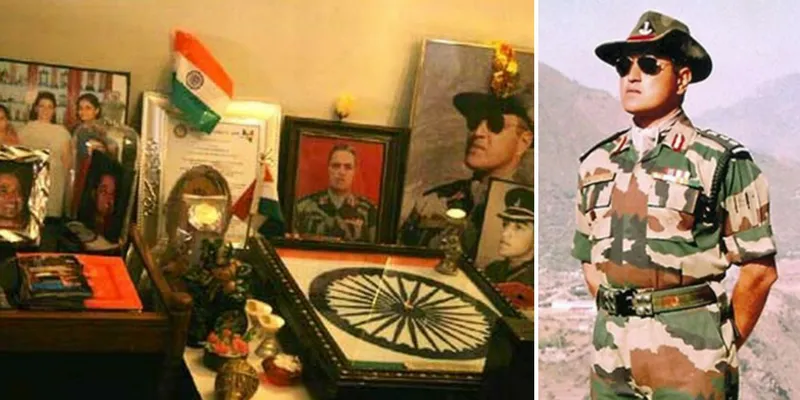
Three months later, Subhashini founded the Vasanthratna Foundation for Arts in the memory of her husband who was conferred with the Ashoka Chakra posthumously. Her experience made her realise that a support system for the widows of armed forces personnel was essential. She recalls,
We need is to figure out what we need to ask. I have learnt this with great difficulty. I have been a very inhibited, shy person to ask for help; but now I am learning. I am breaking that bond, that barrier within myself.
VRFA was initially launched to liaison between civil agencies, the government, and the next of kin of martyrs. Subhashini soon realised that these women, veer naris (brave women), as she fondly calls them, required more than just the leg-work and financial support. Like her, they needed a purpose in their lives, the strength to stand on their own feet, support their children and moreover, they now had to shoulder the responsibility of their in-laws, and the extended families themselves.
Hence, the organisation turned to adapt a holistic and a sustained support system of caring for the martyrs’ families.
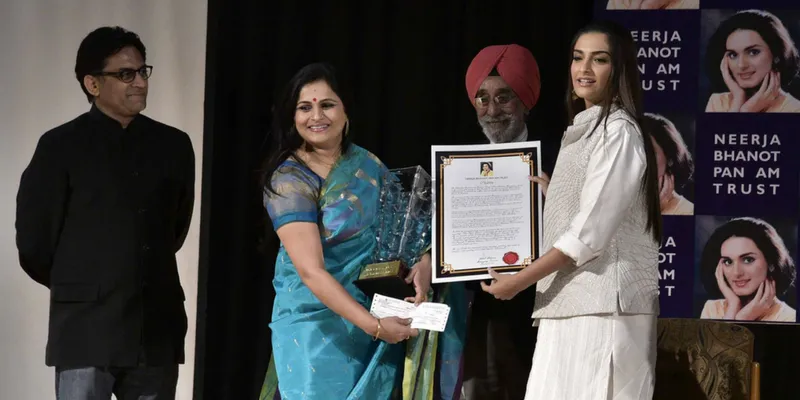
The five-member team collectively works to collaborate between the government policies and the martyred army personnels wives, and enable them to claim their rights with dignity and help them integrate with the society.
Some formalities were done as a part of paying back to the family, the gallantry for the bravery, for the sacrifice, for their husband, brother or son. The soldier’s family was looked after to the best of our ability as an organisation. But, beyond that what Subhashini has done, is shown how we can reach out to these families, their children, and help them to re-build their lives. She conveyed to them that they have to work hard, and struggle but theirs is a world which starts afresh, General J J Singh, PVSM, AVSM, VSM, ADC, and the 22nd Chief of the Army Staff of the Indian Army, says.
Platform for holistic growth
A renowned Bharatnatyam dancer who studied under the tutelage of Vyjayanthimala Bali, Subhashini believed that arts and education was a pathway for healing and empowerment.
After launching the foundation on October 15, 2007, the organisation’s first programme aimed to ensure that a child's education remains uninterrupted. Besides guiding them to enrol in schools, VRFA also provides financial support for children’s education. Through the ‘Education scholarship for school and Master’s programme’, a fixed deposit of Rs 30,000 is provided in each child’s name, the interest of which can be withdrawn every year for other education-related expenses. The child, later, receives the entire amount when he turns 18.
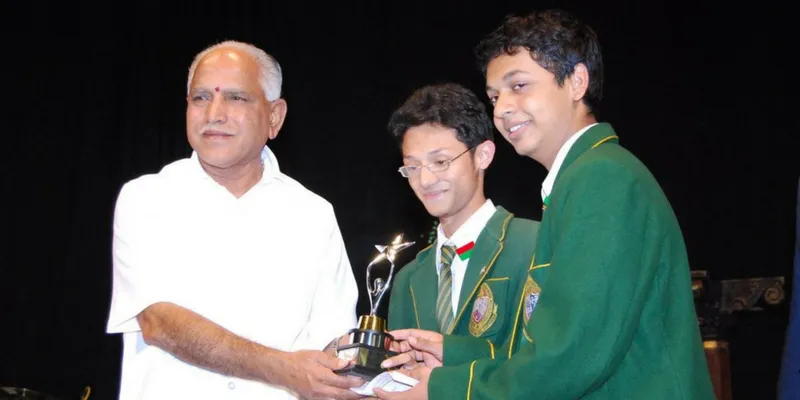
With its Masters programme Subhashini encourages the wives of martyrs to pursue higher studies. Archana Krishna Patil completed her LLB degree with financial support provided by the foundation. Her mother Anita recalls how one day after her husband’s demise, she suddenly received a call from welfare board asking her to visit “a madam from Bangalore.”
She says, My youngest daughter was hardly two years at that time. She used to ask me again why her father was not coming home. Suhasini madam gave me an fixed desposit of Rs 30,000 at that time in the name of my daughter, who is now 18 years old. My eldest daughter is now married, but she has completed her M. Com, after marriage. My second daughter, too, is in her last year of LLB. My youngest daughter wants to join a medical course. I have tried to give education to my girls; they also made me feel proud.
Savitri Yastwanth Kolkar believes that empowerment programmes and workshops comprising computer and English classes gave her the confidence to go out of her home. She says, “We were given training in management of personal finances, computer literacy, and English speaking over the last six years through regular workshops. Earlier we were afraid to go out of our home but now we feel confident of traveling even to distant places and visit government offices to get our work done.”
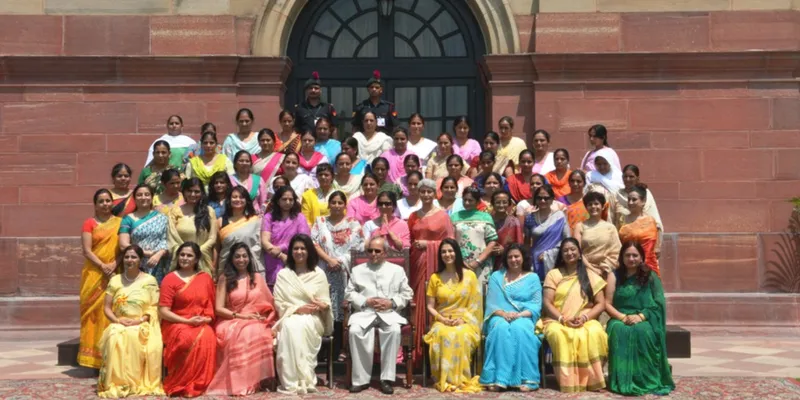
These bi-annual workshops are conducted in collaboration with organisations such as Pegasus Institute for Excellence, Samvada, and Anekata. These empowerment workshops became a meeting ground for the wives to get together and share their stories. The workshops provided them counselling and helped them to build their own personal networks and also, provided them with opportunities to travel outside their village.
Further VRFA recently started the ‘Memorial awards’ in the form of a personalised martyr scholarship award to keep the army men’s legacy alive in the schools and institutions they studied in.
Rising above challenges
Starting an organisation in the midst of a personal tragedy is not an easy task. Subhashini turned to natya (art) to channelise her grief and thus, the VRFA foundation was started. She wrote and performed a play, The Silent Front, about soldiers in combat who die unsung. The money raised from the concerts, staged in Delhi and Bangalore, and donations from friends and families became the seed fund for the foundation.
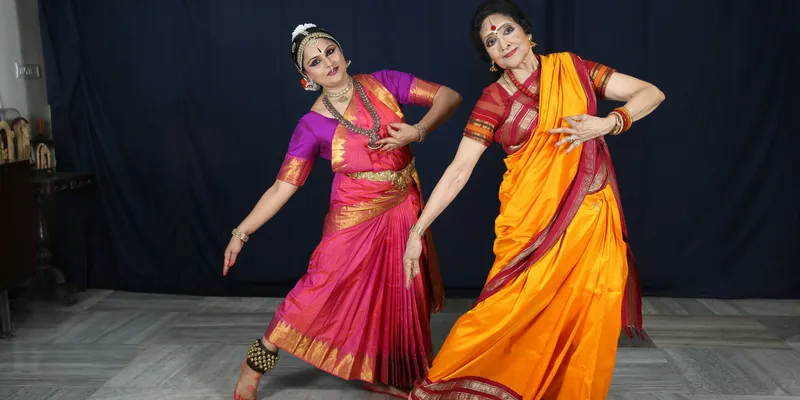
As a part of Karnataka government's wartime compensation policy, framed in 1971, the state sent her a grant of Rs 20,000, sanctioned an annual amount of Rs 800, and a figure just crossing Rs 1 lakh to buy land in Bengaluru. With sustained efforts and numerous rounds to various government offices, the Karnataka government revised its policy and decided to award a lump sum of Rs 5 lakh to the next Ashoka Chakra awardee. However, this would not apply in her case.
While donations have always been a challenge, she initially started the foundation with 30 families from Belgaum, Bagalkot, Coorg and other parts of rural Karnataka.
I only had a vague idea of what we wanted to do but we have come this far only because of people having faith in that vision, which we don't even know yet, what it can transform into, Subhashini says.
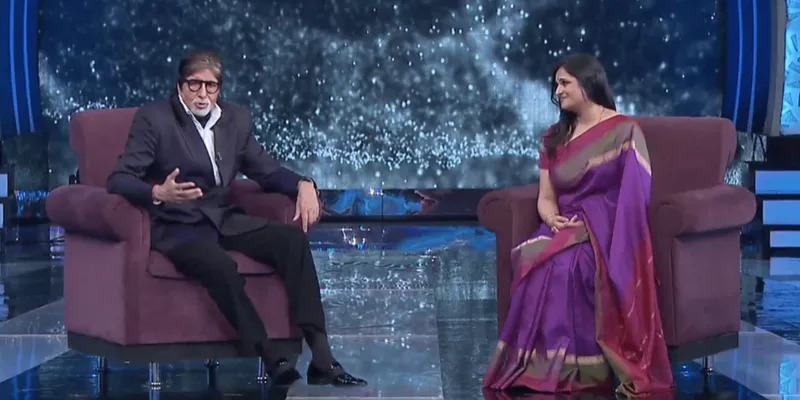
Today, 10 years since its inception, the VRFA community has on board 120 wives and children based in Karnataka. In the coming months, the team will extend its programmes to Andhra Pradesh, Assam, and Delhi.







